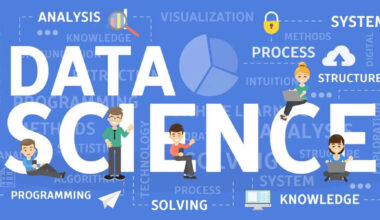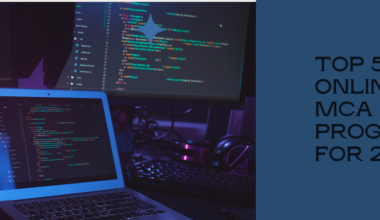The finance world is changing fast, thanks to new technologies like blockchain, digital currencies, and AI. These advancements are not just changing how financial services are delivered—they’re also reshaping the way finance is taught in MBA programs. Traditional courses are being revamped to include these cutting-edge technologies, ensuring that students are well-prepared for a future where finance and technology are deeply interconnected. This shift is opening up new opportunities and career paths for MBA students, making it essential to understand how fintech is influencing the future of finance education.
Let’s take a closer look at how fintech is influencing the future of finance education.
Understanding the Growth of Fintech
Fintech, which stands for financial technology, is about using technology to make financial services better. This includes things like digital payments, blockchain, cryptocurrencies, robo-advisors, and peer-to-peer lending. These innovations have made financial services easier to access, more efficient, and more affordable for both consumers and businesses.
How Fintech is Changing MBA Finance Programs
- New Specialized Courses
MBA finance programs used to focus mainly on traditional topics like accounting, corporate finance, and investment analysis. Now, with the rise of fintech, these programs have added new courses that mix finance with technology. Students can now take classes on blockchain, cryptocurrency, digital banking, and data analytics. These new courses help students get ready for the modern finance world, where technology is a big part.
- More Focus on Data Science and Analytics
Data is very important in fintech. Being able to work with and understand large amounts of data is a key skill for finance professionals today. MBA programs are now offering more courses on data science, machine learning, and artificial intelligence. These classes teach students how to use technology to analyze data, predict market trends, make smart decisions, and get useful insights.
- Hands-On Learning Opportunities
Fintech is also changing how MBA programs teach students. Many schools now offer practical experiences like internships with fintech startups, real-world projects, and hackathons. These hands-on opportunities let students apply what they’ve learned in real situations. By working on actual projects or with real companies, students gain experience that helps them stand out in the job market.
- A Global View on Finance
Fintech is a global trend that affects financial systems around the world. To keep up, MBA programs are including a global perspective in their finance courses. Students study international case studies, learn about financial rules in different countries, and explore the challenges of using fintech solutions in various markets. This global view is important for students who will work in a connected world where finance and technology cross borders.
Key Skills Needed in the Fintech Era
- Technical Skills
To succeed in fintech, finance professionals need to know how to code in languages like Python, R, and SQL. These skills help them use fintech tools, build financial models, and analyze large amounts of data. MBA programs are now encouraging students to learn these technical skills along with traditional finance knowledge.
- Adaptability and Lifelong Learning
Fintech is always changing, so professionals need to be flexible and keep learning throughout their careers. MBA programs stress the importance of staying updated with the latest fintech trends, tools, and rules. This helps graduates remain relevant in the fast-moving finance industry.
- Strategic Thinking and Innovation
Fintech is not just about technology; it’s about finding new ways to improve financial services. MBA programs are now focusing more on teaching students how to think strategically and use fintech to create new business models, enhance customer experiences, and drive growth.
- Ethical and Regulatory Awareness
As fintech grows, there is a greater need for ethical practices and understanding regulations. MBA students are trained to know the legal and ethical issues related to fintech. This ensures they can handle complex regulations while promoting responsible use of technology.
Exciting Career Opportunities in Fintech
The combination of finance and technology has created many new career opportunities for MBA graduates. Here are some of the most exciting roles:
- Fintech Analyst
Fintech analysts work at the crossroads of finance and technology. They study market trends, evaluate fintech solutions, and advise companies on how to use new technologies. This job requires a good understanding of both finance and technology.
- Product Manager – Fintech
Product managers in fintech companies design and manage financial products that use technology. They collaborate with developers, designers, and marketers to create innovative financial solutions.
- Blockchain Consultant
With the growing use of blockchain technology, there is a need for professionals who can help companies use it effectively. Blockchain consultants advise on how to implement this technology in areas like supply chain management, payments, and smart contracts.
- Robo-Advisor Specialist
Robo-advisors use algorithms to provide financial advice with minimal human input. Specialists in this field design, develop, and manage these platforms to meet the needs of different clients.
- Risk and Compliance Manager
As fintech companies face complex regulations, there is an increasing need for risk and compliance managers. These professionals ensure that fintech solutions meet legal requirements and handle risks associated with new technologies.
Conclusion
Fintech innovations are significantly shaping MBA finance specializations. As the financial industry evolves, MBA programs must adapt to equip students for the future. Embracing fintech allows MBA students to acquire the essential skills, knowledge, and experience needed to thrive in a fast-changing world. For those pursuing an MBA in finance, understanding fintech is no longer just a choice—it’s a necessity. If you’re looking for the best MBA college in Ghaziabad , finding a program that integrates fintech into its curriculum will ensure you are well-prepared for the modern finance landscape.






